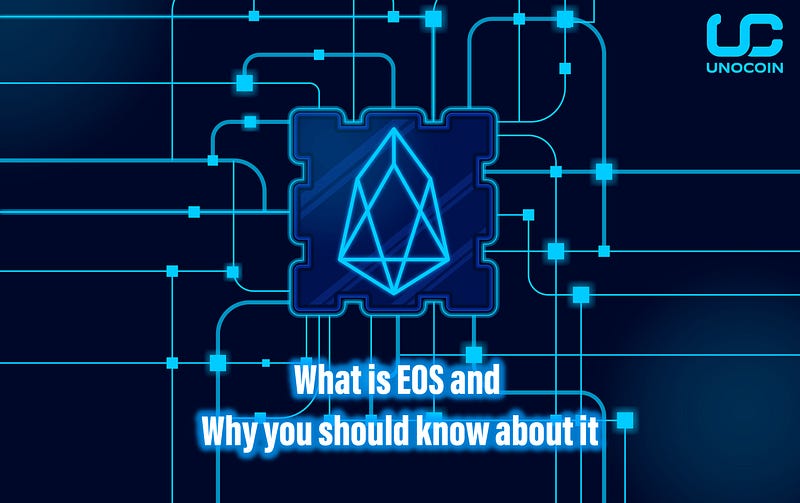EOS is a programmable blockchain run on smart contracts. It is known for its unique approach to solving usability and scalability problems associated with older cryptocurrency platforms. Read on to know the salient features of EOS.

Before we delve into EOS, let’s talk about smart contracts. A smart contract is a computer program which is designed to automatically execute, control or document relevant events and actions following the clauses of a contract or an agreement. A smart contract is a great method to reduce the need for intermediaries or third parties, fraud losses and remove the threat of malicious activities.
It executes itself with the terms of the agreement between the buyer and the seller which are written directly into the lines of codes! These codes contained in the lines exist and are validated across a decentralised blockchain network and powered by peer-to-peer use.
In simple terms, a smart contract is a contract for our times.
Now let’s come back to EOS — EOS is a programmable blockchain run on smart contracts. It is known for its unique approach to solving usability and scalability problems associated with older cryptocurrency platforms. Here are some salient features of EOS:
Delegated Proof of Stake
In the Proof of Stake algorithm, there is a predetermined number of miners called delegates. In EOS, there are 21 delegates who secure the network. Each person who stakes a token can participate in the “mintage” process — which means that they get a chance to take action to validate the block and get rewarded for adding blocks to the blockchain.
Free transactions
Normally, when a user wants to conduct a transaction over the cryptocurrency network, she is charged a fee. But in the case of EOS, transactions are free of charge. This is one of the features that sets EOS apart from the others, although there is a caveat — when too many transactions are flooding the network, EOS enters congestion mode, which increases the requirement of staked amounts.
Storage
Apart from producing blocks, delegates also provide decentralised network storage for EOS. The user’s token holdings determine the storage she will be able to use on the network. More tokens allow for more storage, and as such the delegate has the power to decide how much storage she is willing to provide to the network.
Account Management
EOS, unlike other tokens, as an in-built account management system. It is similar to a Bitcoin address but comes with human-readable identifiers. But human-readable names inevitably come with risks — to counter those, EOS also offers an integrated key recovery system whereby users have the ability to restore their accounts in case of theft.
To sum it all up, EOS comes with a tall promise — to be able to process millions of transactions per second on its decentralised blockchain which can process fast and free transactions. EOS’s Initial Coin Offering is still going and it has already raised an equivalent of over $1 Billion, which makes it one of the most successful ICOs of all time. Learn more about EOS on our platform, and try a hand on this new and promising blockchain network. Click here: http://www.unocoin.com/exchange/



